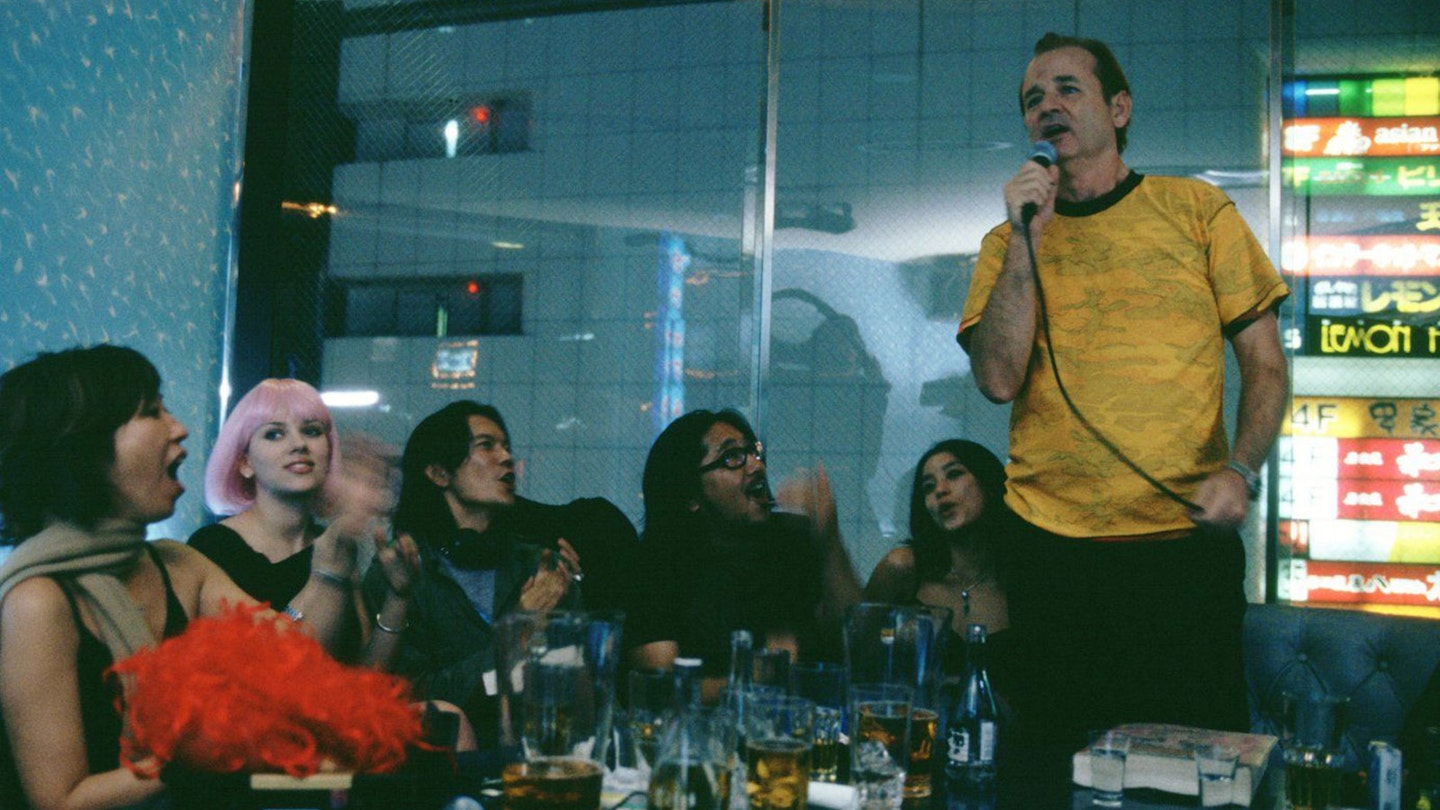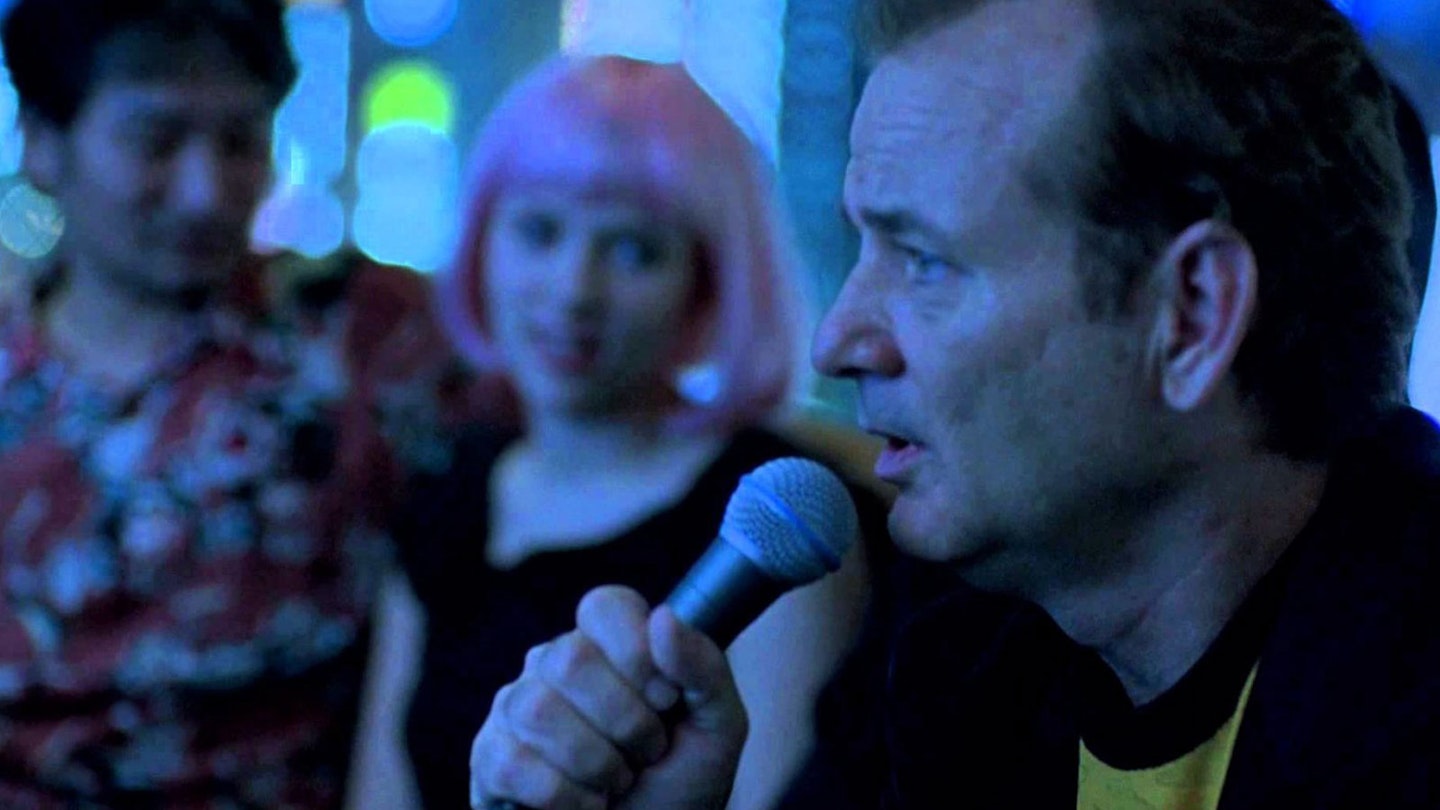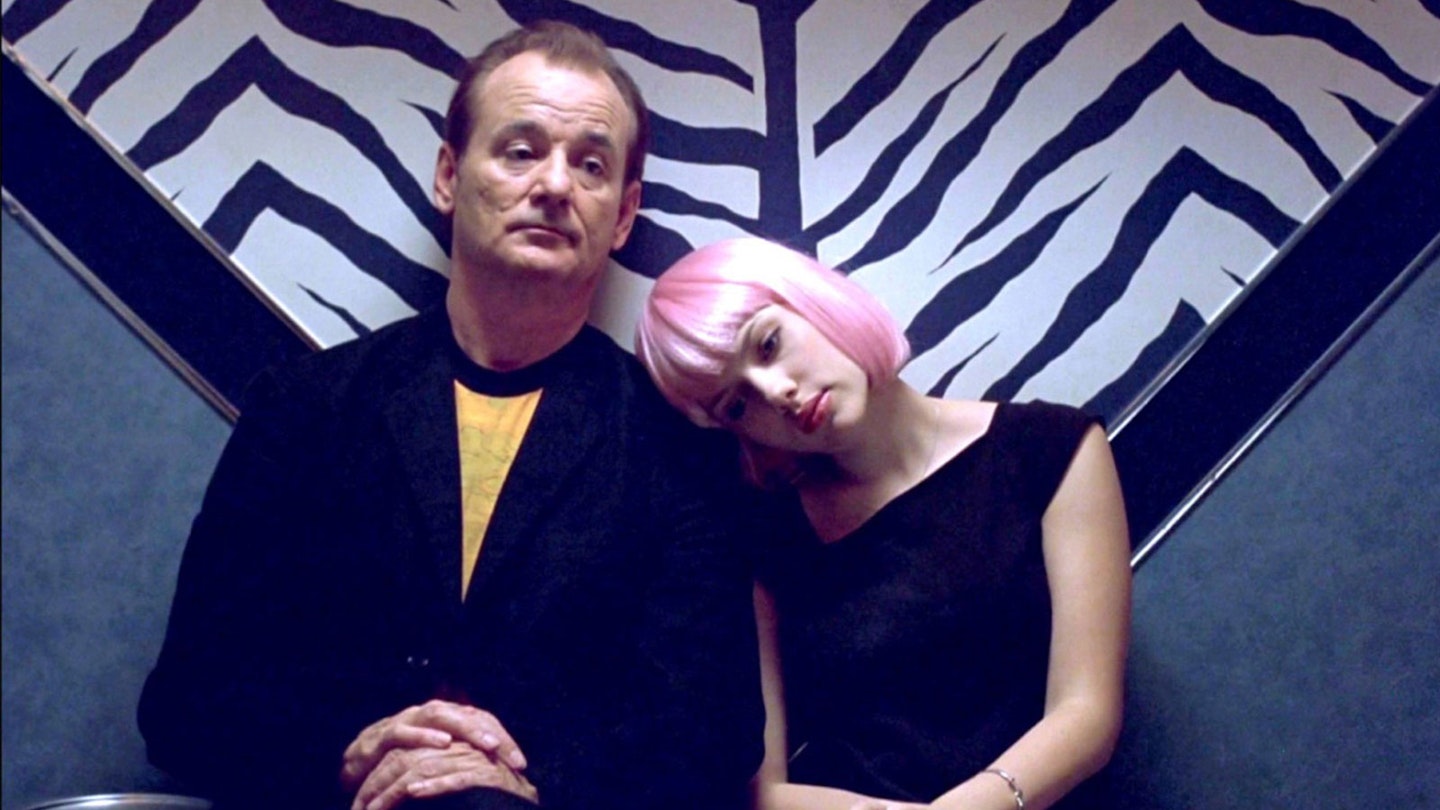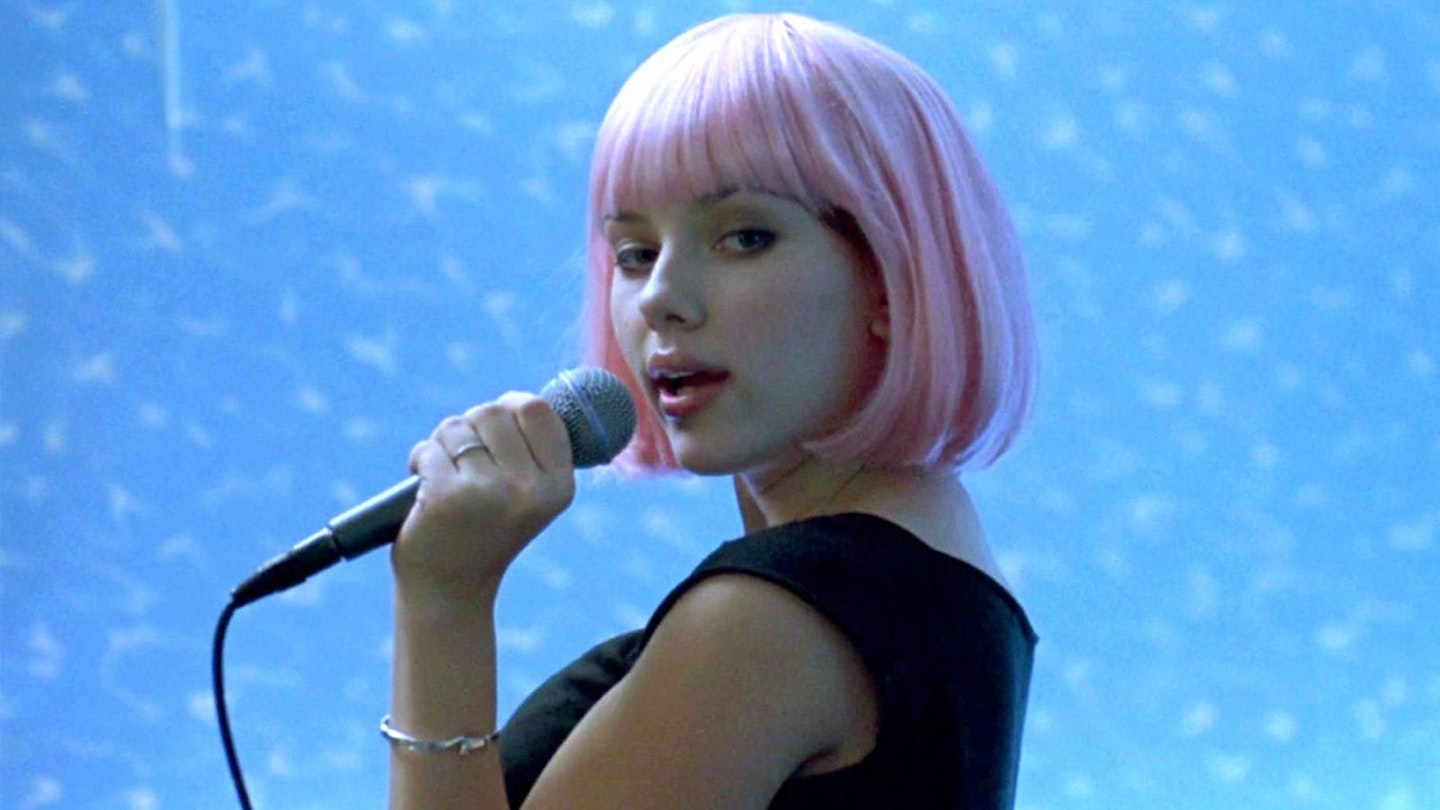In the 20 years since it was released, The Whisper has become the loudest part of Lost in Translation. What did Bill Murray’s Bob say to Scarlett Johannsson’s Charlotte? And what did he mean? Was it really "I have to be leaving, but I won't let that come between us. Okay?" as is often theorised? Or maybe Murray, out of character, said "I love you is the best thing I can come up with. At some point, he has to tell it to her” which is another popular suggestion. Maybe it was something about her binning her absent husband. Maybe it was nothing at all.
“That thing Bill whispers to Scarlett was never intended to be anything,” director Sofia Coppola told Little White Lies on the film’s 15th anniversary. “I was going to figure out later what to say and add it in and then we never did.” But trying to understand that mysterious exchange has for too long obscured a far more genuinely affecting bit of Coppola’s film. We can go round the houses about The Whisper again, but the sequence where Bob and Charlotte go on their big karaoke night out is where the wobbly, uncertain heart of Lost in Translation truly lies.

They’re out in Tokyo. It’s the first time they’ve properly spent time together outside the hotel, and already they’ve been chased out of one bar by a guy with an automatic pellet rifle, taken refuge in a pachinko bar, got slightly blazed in someone’s flat and started loosening up a little. Everything’s starting to feel slightly less alien.
One of the critiques Lost in Translation gets is that it uses its Japanese characters less as people than as set dressing, and Tokyo as an alien planet where anglophones react with bemusement to the funny little locals. “Why do they switch the r's and the l's here?” Charlotte wonders at one point; later Bob mocks a woman asking him to rip her tights: “Lip them? What?” That doesn’t seem to be what’s happening in the karaoke sequence, though. Aside from a brief chat between Bob and a guy who tells him about the weed he’s been growing, this is the first point of genuine communication Bob and Charlotte have managed with people in Japan.
Bob and Charlotte bonded initially over their shared language. Outside the karaoke booth, though, they understand each other better without having to say anything.
It’s slightly odd that The Whisper is the bit everyone associates with Lost in Translation, because it’s the only bit of the movie where anyone tells someone else exactly how they feel about them. The karaoke sequence is a much better embodiment of what the movie’s about – a beautiful bit of intimation and suggestion and just enough irony to stop anyone taking what’s said entirely seriously. Every karaoke song choice is a chance to tell your fellow singers something about yourself using other people’s words. If you’ve ever been in a booth with some mates before, you’ll have seen it happen: the bros linking arms to belt out ‘Don’t Look Back in Anger’; that one person who makes everyone sit down and shut up because they’re doing a mini-set of songs from Oliver! and you’re going to bloody well listen.

Bob and Charlotte’s tour guide does a genuinely decent run through the Sex Pistols’ ‘God Save the Queen’, getting right up in the frame. It looks like another ‘lol Japan’ moment, but you can also see it as a bit of cross-cultural communication too. (Not that Bob and Charlotte return the favour; they’re way too wrapped up in what they’ve got going on.) Fifty-something Bob and 19-year-old Charlotte’s picks highlight just how big that generation gap is too, not just in what they sing but how they sing it.
When Bob sings Brinsley Schwarz’s ‘What’s So Funny ‘Bout Peace Love and Understanding?’, he’s singing it as a guy who really likes Brinsley Schwarz’s ‘What’s So Funny ‘Bout Peace Love and Understanding?’. Maybe he bought the single when it came out; maybe he liked the Elvis Costello version, but rated the Brinsley version more. Either way, he sounds a little bruised. He’s clearly got history with Brinsley Schwarz’s ‘What’s So Funny ‘Bout Peace Love and Understanding?’. But then when Charlotte does ‘Brass in Pocket’ by The Pretenders, she’s doing it as an oldie. She’s in character, bright pink wig on, giving it her best Chrissie Hynde. There’s a big set of air quotes around the line, “Gonna make you notice” – but she also kind of means it. Then Bob does ‘More Than This’ by Roxy Music, and it’s absolutely perfect. Bob makes for a weary, fragile kind of Bryan Ferry, the lounge lizard who’s lost the ability to really connect. He takes a shot before his first line then barely opens his mouth to sing, either too exhausted or too numb to really let go. The opening line is “I could feel at the time”; the implication, perhaps, is that he can’t so much now.

Bob and Charlotte bonded initially over their shared language, finding each other a little island of home to perch on in a country which they didn’t – or weren’t inclined to – understand. Outside the karaoke booth, though, they understand each other better without having to say anything. Charlotte smokes a cigarette, and Bob sits down to take a drag. The corridor looks like it’s trapping them between its closing walls. Charlotte looks intently at him, waiting for him to look at her. He looks pointedly out of frame at nothing in particular. She puts her head on his shoulder, and he raises his hands to do something – put an arm around her? Push her away? – and settles on a non-committal, extremely dad-ish both-hands-on-knee. He looks in that moment like he’s arrived to take his daughter home from a party which has gone on too long.
You know what it all means without anything really being said, or any sincerity, and with most of the characters’ words being borrowed from other people – something for them to hide behind. There’s something happening here, even if it shouldn’t really be. They know it too: even when Bob and Charlotte speak the same language, they deliberately make communication obtuse rather than obvious. Their karaoke session shifts something between them, though you could watch it a million times and never quite be sure what. There’s some kind of magic happening in that booth, which is far more mysterious than The Whisper. It might just be the reminder that wherever you are, and whoever you’re with, there’s a lingering sense that there must be more than this.
